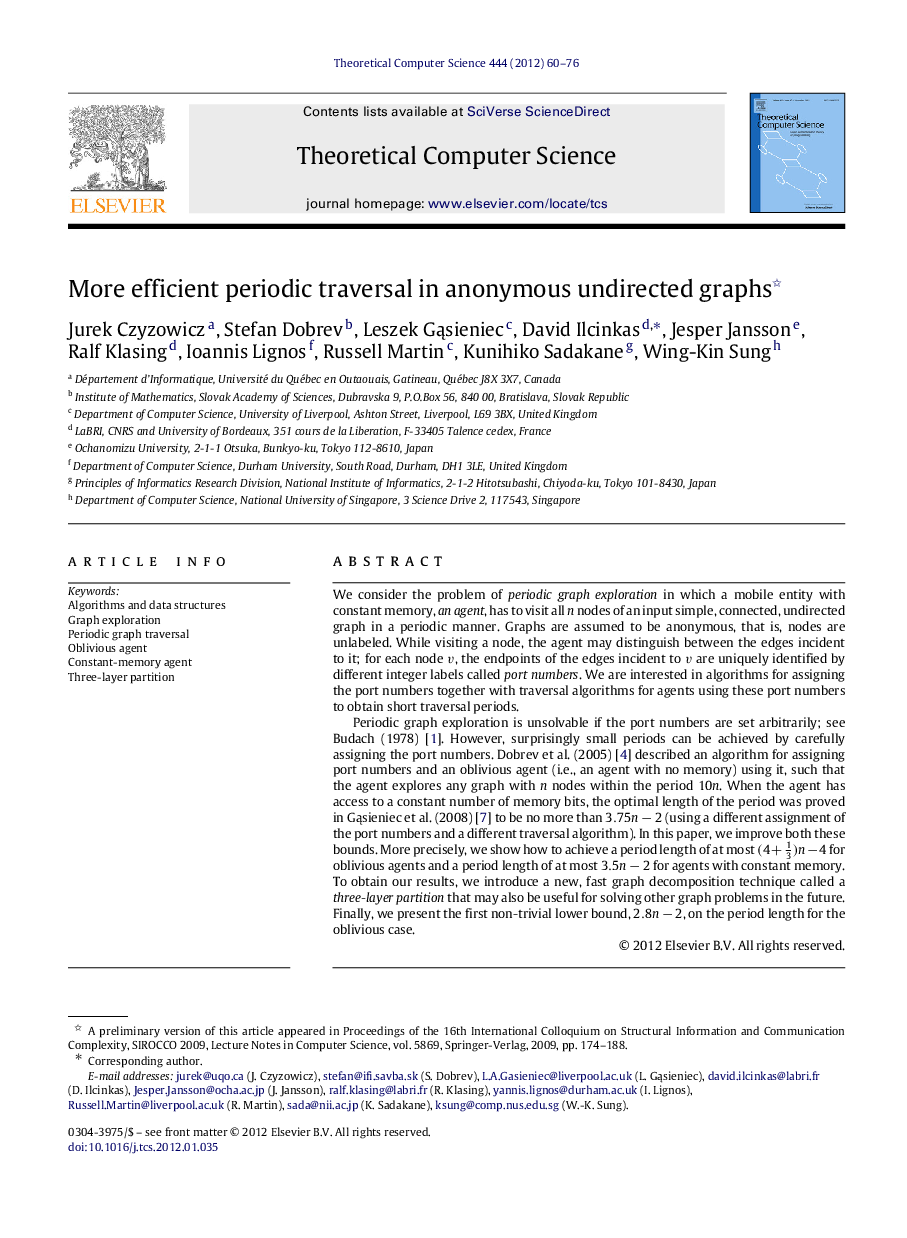| کد مقاله | کد نشریه | سال انتشار | مقاله انگلیسی | نسخه تمام متن |
|---|---|---|---|---|
| 434848 | 689814 | 2012 | 17 صفحه PDF | دانلود رایگان |

We consider the problem of periodic graph exploration in which a mobile entity with constant memory, an agent, has to visit all n nodes of an input simple, connected, undirected graph in a periodic manner. Graphs are assumed to be anonymous, that is, nodes are unlabeled. While visiting a node, the agent may distinguish between the edges incident to it; for each node v, the endpoints of the edges incident to v are uniquely identified by different integer labels called port numbers. We are interested in algorithms for assigning the port numbers together with traversal algorithms for agents using these port numbers to obtain short traversal periods.Periodic graph exploration is unsolvable if the port numbers are set arbitrarily; see Budach (1978) [1], . However, surprisingly small periods can be achieved by carefully assigning the port numbers. Dobrev et al. (2005) [4], described an algorithm for assigning port numbers and an oblivious agent (i.e., an agent with no memory) using it, such that the agent explores any graph with n nodes within the period 10n. When the agent has access to a constant number of memory bits, the optimal length of the period was proved in Gąsieniec et al. (2008) [7] to be no more than 3.75n−2 (using a different assignment of the port numbers and a different traversal algorithm). In this paper, we improve both these bounds. More precisely, we show how to achieve a period length of at most for oblivious agents and a period length of at most 3.5n−2 for agents with constant memory. To obtain our results, we introduce a new, fast graph decomposition technique called a three-layer partition that may also be useful for solving other graph problems in the future. Finally, we present the first non-trivial lower bound, 2.8n−2, on the period length for the oblivious case.
Journal: Theoretical Computer Science - Volume 444, 27 July 2012, Pages 60-76